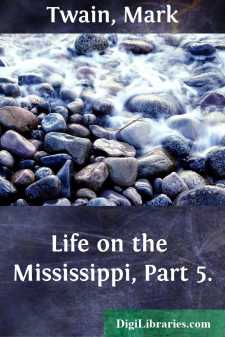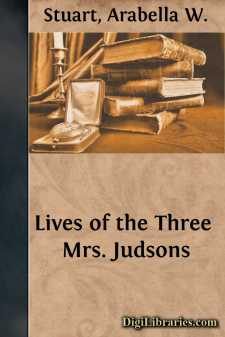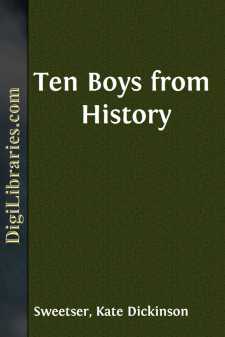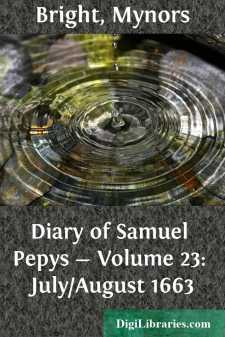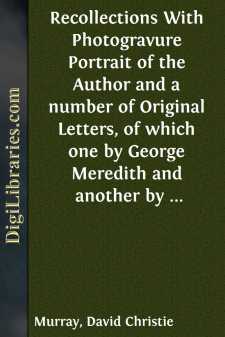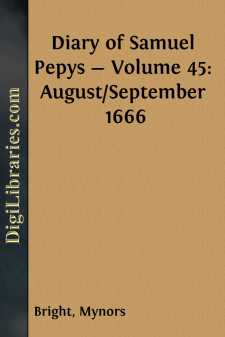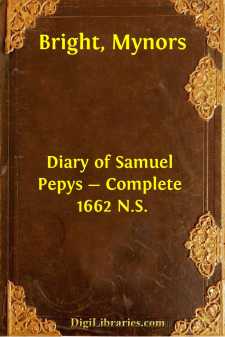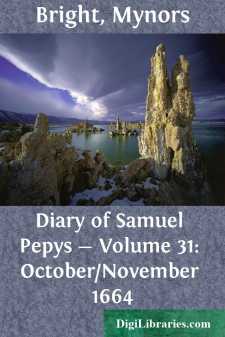Biography & Autobiography
- Adventurers & Explorers 15
- Artists, Architects, Photographers 16
- Business 2
- Composers & Musicians 14
- Criminals & Outlaws 5
- Editors, Journalists, Publishers 6
- Educators 1
- Entertainment & Performing Arts 3
- General 73
- Health, Exercise & Fitness 1
- Historians 3
- Historical 83
- Law Enforcement 1
- Lawyers & Judges 3
- Literary 147
- Medical 7
- Military 48
- Naturalists, Gardeners, Environmentalists 8
- Personal Memoirs & Diaries 226
- Philosophers 3
- Political 9
- Presidents & Heads of State 38
- Religious 38
- Rich & Famous 27
- Scientists 13
- Women 31
Biography & Autobiography Books
Sort by:
by:
Mark Twain
Chapter 21 A Section in My Biography IN due course I got my license. I was a pilot now, full fledged. I dropped into casual employments; no misfortunes resulting, intermittent work gave place to steady and protracted engagements. Time drifted smoothly and prosperously on, and I supposed—and hoped—that I was going to follow the river the rest of my days, and die at the wheel when my mission was...
more...
CHAPTER I. MRS. JUDSON'S BIRTH, EDUCATION, AND CONVERSION. When an individual attains a position of eminence which commands the admiration of the world, we naturally seek to learn his early history, to ascertain what indications were given in childhood of qualities destined to shine with such resplendent lustre, and to discover the kind of discipline which has developed powers so extraordinary....
more...
"To the sea of fools Led the path of the children." Old Epigram. Just a word about the Crusades, or Holy Wars, before we begin our story. A war is generally a conflict between nations, countries, or individuals, for possession of land or a throne, but the Holy Wars were not such. They were expeditions made by those Christians who were determined to rescue the Sepulchre, or tomb, of Christ and...
more...
I.--Héloïse to Abélard Heloise has just seen a "consolatory" letter of Abelard's to a friend. She had no right to open it, but in justification of the liberty she took, she flatters herself that she may claim a privilege over everything which comes from that hand. "But how dear did my curiosity cost me! What disturbance did it occasion, and how surprised I was to find the whole...
more...
by:
Mynors Bright
DIARY OF SAMUEL PEPYS. JULY & AUGUST 1663 July 1st. This morning it rained so hard (though it was fair yesterday, and we thereupon in hopes of having some fair weather, which we have wanted these three months) that it...
more...
CHAPTER I The Unlucky Day of the Fool's Month—High Street, WestBromwich—My First Pedestrian Triumph—The Common EnglishBracken—The Sense of Beauty. I remember that in a fit of petulance at some childish misdemeanour, my mother once told me that I came into the world on the unlucky day of the fool's month. It was her picturesque way of saying that I was born on the thirteenth of April....
more...
by:
Mynors Bright
DIARY OF SAMUEL PEPYS. AUGUST & SEPTEMBER 1666 August 1st. Up betimes to the settling of my last month's accounts, and I bless God I find them very clear, and that I am worth L5700, the most that ever my book did yet make...
more...
by:
Mynors Bright
JANUARY 1661-1662 January 1st. Waking this morning out of my sleep on a sudden, I did with my elbow hit my wife a great blow over her face and nose, which waked her with pain, at which I was sorry, and to sleep again. Up and went forth with Sir W. Pen by coach towards Westminster, and in my way seeing that the "Spanish Curate" was acted today, I light and let him go alone, and I home again and...
more...
by:
Mynors Bright
DIARY OF SAMUEL PEPYS. OCTOBER & NOVEMBER 1664 October 1st. Up and at the office both forenoon and afternoon very busy, and with great pleasure in being so. This morning Mrs. Lane (now Martin) like a foolish woman, came to the...
more...
by:
Lena Ashwell
CHAPTER I ELSIE INGLIS "Elsie Inglis was one of the heroic figures of the war." Suffrage. "During the whole years of the Suffrage struggle, while the National Union of Women's Suffrage Societies was growing and developing, Dr. Elsie Inglis stood as a tower of strength, and her unbounded energy and unfailing courage helped the cause forward in more ways than she knew. To the London...
more...


